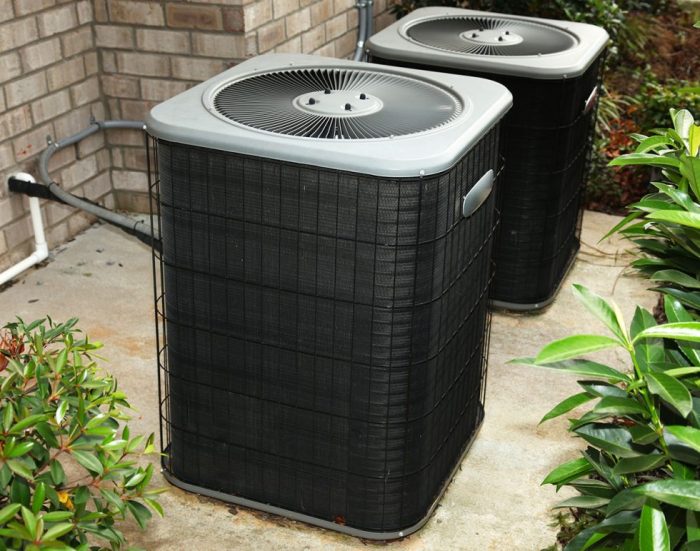Can I Use Air Conditioner Water for Plants?
Can I Use Air Conditioner Water for Plants?
Can i use air conditioner water for plants – Air conditioner condensate, the water that drips from your AC unit, presents an intriguing possibility: free water for your plants. However, before you start watering your prized roses with AC condensate, it’s crucial to understand its composition and potential impact on your plants. This article explores the chemical and microbial properties of air conditioner condensate, compares it to other water sources, and provides a practical guide for safe and effective use (or avoidance).
Water Composition Comparison

Source: aircondlounge.com
Understanding the mineral content and pH of air conditioner condensate is essential for assessing its suitability for plant irrigation. A comparison with tap water and rainwater provides a clearer picture.
| Water Source | Mineral A (Calcium) | Mineral B (Magnesium) | Mineral C (Sodium) |
|---|---|---|---|
| Air Conditioner Condensate | Low to Moderate | Low to Moderate | Variable, potentially higher |
| Tap Water | Variable, depending on location | Variable, depending on location | Variable, depending on location |
| Rainwater | Low | Low | Low |
The pH of air conditioner condensate typically falls within a slightly acidic to neutral range (pH 6-7), though this can vary depending on factors like the air conditioner’s age and the materials used in its construction. Tap water pH also varies geographically, often ranging from slightly acidic to slightly alkaline (pH 6-8). Rainwater is generally slightly acidic (pH 5.6), due to the absorption of atmospheric carbon dioxide.
Significant deviations from the optimal pH range (6.0-7.0) for most plants can hinder nutrient uptake and root development. For example, extremely acidic conditions can lead to nutrient deficiencies and root damage, while excessively alkaline conditions can cause nutrient lockout. An image depicting the effects would show healthy roots in the optimal pH range, stunted and damaged roots in very acidic or alkaline conditions.
Air conditioner condensate may contain traces of dust, pollen, and other airborne particles collected by the unit. Depending on the coolant used and the condition of the system, there is a potential for trace amounts of refrigerant chemicals, although generally minimal. Regular maintenance of the air conditioning unit is vital to minimizing the risk of harmful substances in the condensate water.
Microbial Content Analysis
Air conditioner condensate can harbor various microorganisms, including bacteria, fungi, and algae. The presence and type of microorganisms depend on factors such as the cleanliness of the unit, the frequency of its use, and the ambient environment.
| Microorganism | Potential Source | Potential Harm to Plants | Mitigation Strategies |
|---|---|---|---|
| Legionella pneumophila | Stagnant water in the AC unit | Not directly harmful to plants, but poses a risk to humans | Thorough cleaning and disinfection of the AC unit |
| Various fungi and molds | Airborne spores | Can cause root rot and other plant diseases | Boiling or UV sterilization of the condensate water |
| Algae | Airborne spores and existing contaminants | Can clog drainage systems and potentially introduce unwanted nutrients | Filtering the water |
Introducing these microorganisms into the soil can disrupt the delicate balance of the soil ecosystem, potentially leading to plant diseases and nutrient imbalances. Therefore, sterilizing the condensate water before use is crucial.
Methods for sterilizing air conditioner condensate include boiling, using UV sterilization lamps, or employing a chemical disinfectant (following label instructions carefully). Filtering the water can remove larger particles and debris.
Practical Application and Safety
Using air conditioner condensate for plants offers a sustainable approach to water conservation, particularly in areas with water scarcity. However, proper collection and handling are essential.
- Collect the condensate water in a clean container, avoiding contamination from dirt or other substances.
- Allow the water to settle to remove any sediment.
- Sterilize the water using one of the methods described above.
- Water your plants as usual, avoiding overwatering.
Safety precautions include wearing gloves when collecting and handling the condensate water, and ensuring proper ventilation when boiling or using chemical disinfectants. Avoid direct skin contact with the water.
Alternative Uses and Considerations
Besides watering plants, air conditioner condensate has other potential applications. However, it’s important to weigh the benefits against potential drawbacks.
- Cleaning floors and surfaces (after sterilization).
- Flushing toilets (not recommended for septic systems).
Drawbacks include the potential presence of harmful chemicals or microorganisms, and the variability in its mineral content, which might not suit all plant types. Assessing the suitability of air conditioner condensate for specific plants involves considering their individual water requirements and tolerance to slightly acidic conditions.
For example, acid-loving plants like azaleas and rhododendrons might tolerate the slightly acidic pH of air conditioner condensate better than plants that prefer neutral or alkaline conditions.
Long-Term Effects on Plant Growth, Can i use air conditioner water for plants

Source: dolphincooling.com
A controlled experiment can help assess the long-term effects of using air conditioner condensate on plant growth.
| Variable | Control Group | Experimental Group | Measurement Method |
|---|---|---|---|
| Watering Source | Tap water | Sterilized air conditioner condensate | Regular measurement of plant height, leaf count, and overall biomass. Soil testing for nutrient levels and microbial composition at regular intervals. |
Long-term use of air conditioner condensate might affect soil health by altering its pH and nutrient balance. The potential changes to soil structure and nutrient availability would depend on the initial soil composition and the frequency of application. For instance, prolonged use of acidic condensate might lead to a decrease in soil pH, potentially affecting the availability of certain nutrients.
Regular soil testing is crucial to monitor these changes and adjust the watering strategy accordingly.
Commonly Asked Questions: Can I Use Air Conditioner Water For Plants
Is it safe to use air conditioner water directly on plants without treatment?
No, it’s generally not recommended. Untreated condensate water may contain harmful substances or microorganisms.
What types of plants are most suitable for air conditioner water?
Hardy, drought-tolerant plants generally tolerate variations in water quality better than more sensitive varieties. However, always start with a small test to monitor the plant’s reaction.
How often should I test the water quality before using it on my plants?
Regular testing (at least monthly) is recommended, especially if you notice changes in the air conditioner’s operation or your plants’ health.
Can I use air conditioner water for all my plants?
It’s best to test on a small sample of plants first. Some plants may be more sensitive to the water’s composition than others.




















